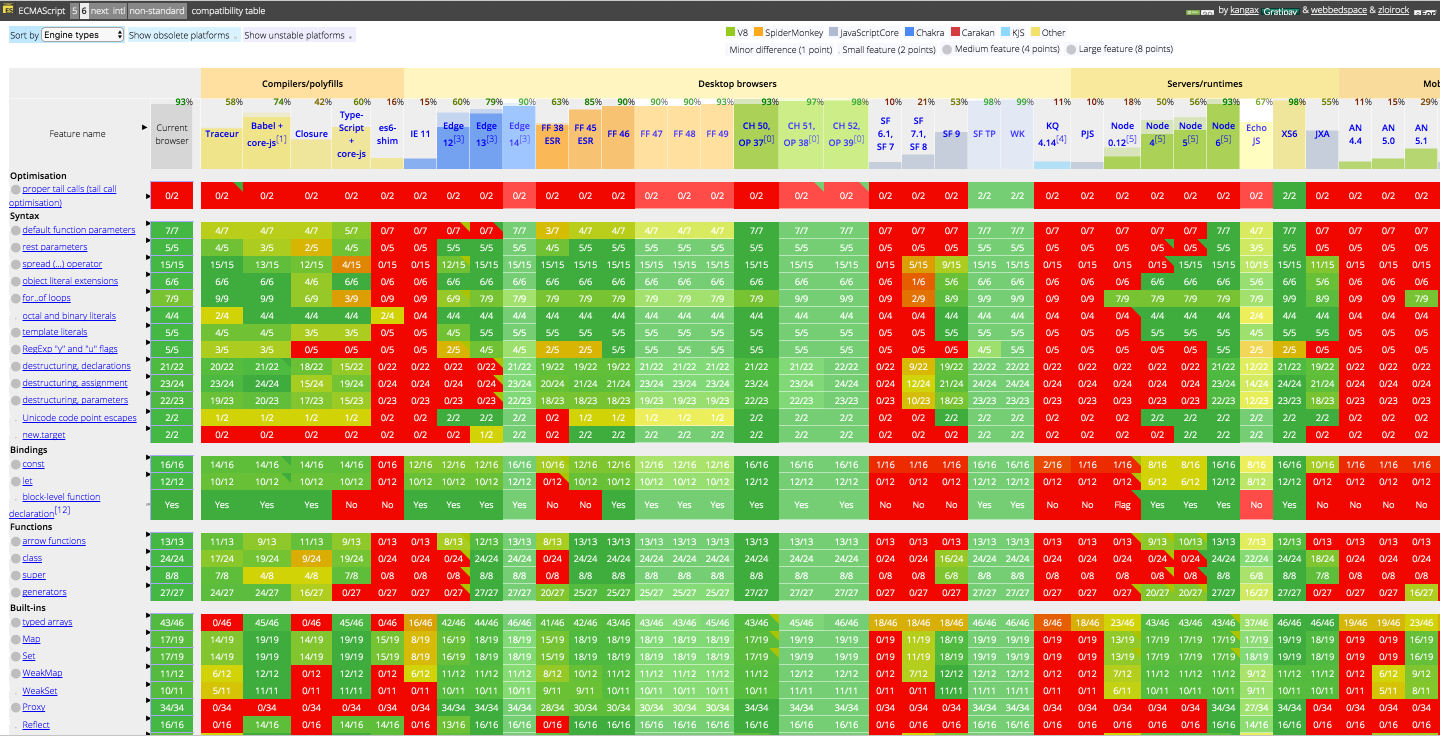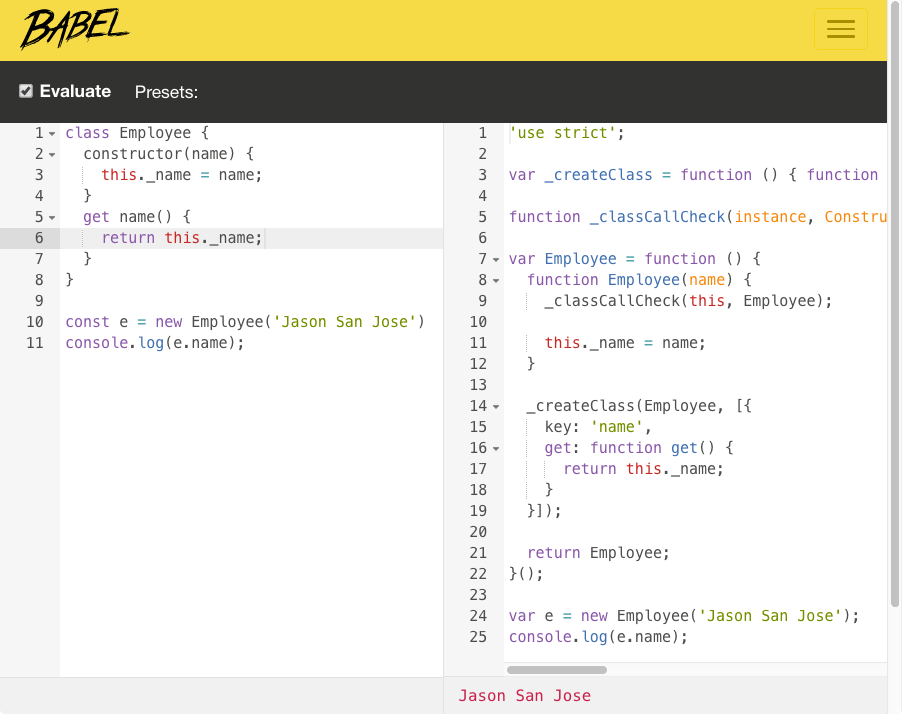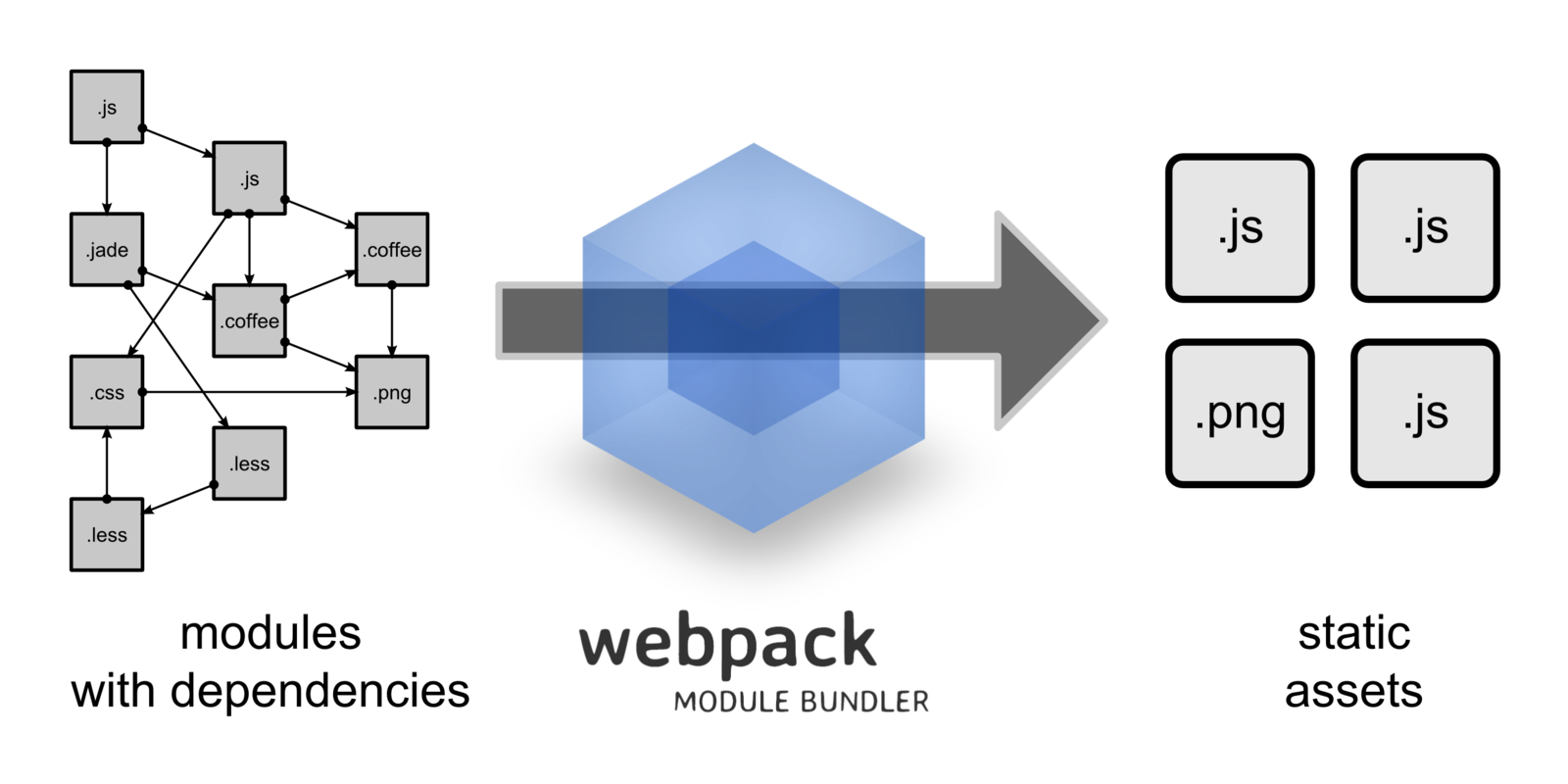ES 2015 & Webpack
Who's this for? 👪
- Want to get started with ES 2015?
- Using RequireJS but looking for more?
- "Huh, RequireJS?"
- Not sure how this could be better than F5?
Learning Goals ⚽️
- CommonJS modules
- ES 2015 introduction
- Webpack basics
- A developer environment with incremental compilation (goodbye* F5!)
You lost me at modules... 😵
<script> tag
// https://learn.jquery.com/about-jquery/how-jquery-works/
<script src="jquery.js"></script>
<script>
// Your code goes here.
</script>- Creates global variable/namespace $ (a.k.a. window.jQuery)
- Additional <script> tags are another HTTP request
- Weak dependencies
- Synchronous loading
- and more...
Immediately-Invoked
Function Expression (IIFE)
var API = (function () {
var $ = window.jQuery,
myPrivateVar = 42,
myAPI;
// your code
return myAPI;
}());- Doesn't pollute global namespace
- Private variables via closure
- Same weak dependencies as <script>
RequireJS
<!-- index.html -->
<script data-main="js/main" src="js/lib/require.js"></script>/* js/main.js */
// http://requirejs.org/docs/jquery.html#modulename
requirejs.config({
baseUrl: 'js/lib',
paths: {
jquery: 'jquery-1.9.0'
}
});
requirejs(['yourcode']);
/* js/yourcode.js */
define(['jquery'], function(jquery) {
// your code
});
Why RequireJS?
CommonJS
- Strong dependencies
- Synchronously resolve module dependencies
- "Practically" the same as NodeJS modules (see module.exports)
- Can't be natively supported in-browser
var $ = require('jquery');
exports.myAPI = function () {
// your code
};- One module format that works in AMD and CommonJS loaders
- Best used by library authors where the runtime context is unknown
ES 2015
The artist formerly known as ES6
Features
- Module definition
- ...no module loaders 😰
- Promises
- Arrow functions
- Classes
- Template strings
- Block scoped variables (i.e. no hoisting)
- See more from Babel
Classes
class Person {
constructor(name) {
this._name = name;
}
get name() {
return this._name;
}
}
class Employee extends Person {
constructor(name, title) {
super(name);
this._title = title;
}
}Template Strings
const name = 'Jason San Jose'
console.log(`Hello, ${name}`);Promises
function someAsyncTask() {
return new Promise((resolve, reject) => {
callbackAPI(function (err, result) {
if (err) {
reject(err);
} else {
resolve(result);
}
});
});
}
function complicatedAsyncTask() {
return Promise.all([someAsyncTask(), anotherAsyncTask()])
.then((result1, result2) => {
// merge results
return mergedResult;
})
.catch((reason) => {
// deal with errors
});
}
// ...
complicatedAsyncTask().then((result) => {
// handle result
});Awesome! Can I use it?

It's complicated...
Credit: @kangax
Babel
- JavaScript compiler
- Transpiles ES 2015 syntax to ES5
- Optional support for TC39 proposals
- Available as a CLI, RequireJS loader, Webpack loader, and more
- ...optional module loading via draft proposal
Use ES 2015 in the browser today!
Babel CLI
$ npm install --save-dev babel-cli
$ babel script.js --out-file script-compiled.jsBabel REPL

Get to the point already! 😡
- Modules are great!
- RequireJS allows in-browser AMD modules, but not CommonJS
- UMD mitigates module format issues
- ES 2015 = Grown Up JavaScript
- Spotty browser support
- Requires a build step

Why Webpack? 🤔
- Webpack is a module bundler
- Modules help with code reuse
- Modules are more familiar to classic languages
- Leverage Node.js and browser-centric JS libraries
- Shim incompatibly libraries
- Configurable builds for different environments
- Optionally "chunk" modules for async loading
- Loaders and plugins to extend functionality
Demo
ES 2015 and Webpack
By Jason San Jose
ES 2015 and Webpack
- 374

